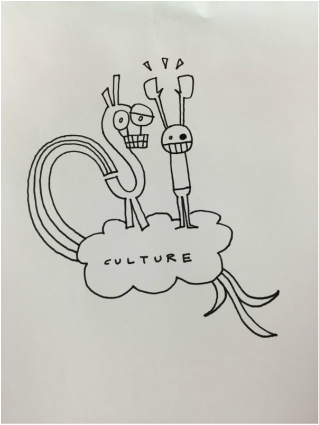 Consequences of not engaging employees Consequences of not engaging employees Do you ever ask yourself, “What do those we are employing (or seeking) want?” Option 1 – Your answer is no. You don’t ask this question and/or you think it is a stupid question. You’ve got it figured out, so you should probably skip this article. It’s poorly written anyways. Option 2 – Your answer is yes. You ask this question and/or you think it is a relevant one. We agree. So we want to know what you have come up with? Please share what you and your team have discovered. Those in group 1 and group 2 have this in common, they are both tired of business catch phrases such as “employee engagement” in so far as there is a lot of talk but not a lot of help. Investing in people comes at a cost. Everyone who has invested in some aspect of employee development has painful stories of those they invested in only to have them lose the fire, take their fire to a competitor or who literally set fire to the organization. For the later you can think of Milton’s character in the cinematic masterpiece Office Space. Yet, it would be important to note that the management team depicted in that film did not invest very intentionally in that unique individual. Thankfully, there are also those stories that are still unfolding of individuals whom we have invested in who are developing or even active as leaders who are themselves investing in others. Those are the stories we have to treasure as we continue to learn from our past, present and future experience - whether positive or negative. We can rephrase the opening question this way, how do we connect in such a way that we are able to facilitate collaboration within the organization? Connecting and collaborating are the key components to finding ways to conquer. What can we do to make employee engagement something tangible in our recruiting, our development and our retention of quality team members? In management there is an inescapable truth that we will receive the team that we deserve (a topic we addressed in our article Leading With Empathy that was published in About Leaders). Let that settle in for a minute. If we go back to Office Space, poor leadership stemming from a few of our key factors, such as no organizational clarity, low consistency and zero accountability, that iconic detached leader had the team he deserved. Why should it matter what our lowly employees want and why would we take the time to care? Cue the dangling carrot and our answer is profitability. Wait. Are we saying that investing in creating an environment that will increase employee happiness (fancy word = engagement) may also lead to better profitability? No. We aren’t saying that at all but this really smart and successful person is - Former CEO of Xerox, Anne Mucahy speaks to the importance of engagement, “Employees who believe that management is concerned about them as a whole person – not just an employee – are more productive, more satisfied, more fulfilled. Satisfied employees mean satisfied customers, which leads to profitability.” If we reverse this thread, we start with profitability, which all organizations know is key to survival. Profitability comes from satisfied customers which comes from satisfied employees which comes from where? Call it what you want, but it’s employee engagement. The first key to successful employee engagement is having a desire to connect in a meaningful way. If you have no perspective or desire to connect, you won’t. The next step is about as simple and challenging as the first, being consistent about being intentional to connect with the individuals as well as the whole of your team. These two points are simple enough to point out, but if you jump in those trenches they are complex. If you fail, you are in good company. If you learn from failure and success and share your experiences with others who are doing the same (we call that collaboration), you may have a fighting chance. It’s a start.
0 Comments
 The question is not whether our organization has a culture the question is whether our culture has evolved by chance or because we have been intentional in developing it (more on business culture HERE). If our goal is to have a healthy and thriving team, culture becomes a key component of caring for the organization. If we can identify, build and staff around a culture that enhances our values then our combined efforts will have greater focus and potency. The development of a culture becomes, through the process, a component of attracting, caring for and retaining good team members. In short, take care of the culture because the culture is what cares for our people. If we care for our people, our team members will be enabled and energized to care for our customers. In service based companies, our people on the ground and in the field are the ones who have the bulk of the hands on interaction with our customers. Team members that are cared for will care about the team and will do work that communicates care on through to our clientele. Caring for our culture is one of the most effective things we can do as leaders because the culture is what takes care of our team member who in turn are the ones caring for our clients. Our culture is unique and our people are unique so the culture is always evolving as we develop. The end goal is the same, create positive customer experiences so that our combined efforts create value that people will gladly pay for. All companies need dollars in order to function at every level, but we often forget that at the end of the line those dollars come from people (customers) that care. People that care come from people that are cared for (our team members). Therefore being intentional about caring is one of the most profitable areas we can focus our efforts. Culture is not a unicorn. Culture is a gold mine. Let us help you identify and enhance your culture, contact MIZDOTBIZ today. |
AuthorThoughts on personal and professional development. Jon Isaacson, The Intentional Restorer, is a contractor, author, and host of The DYOJO Podcast. The goal of The DYOJO is to help growth-minded restoration professionals shorten their DANG learning curve for personal and professional development. You can watch The DYOJO Podcast on YouTube on Thursdays or listen on your favorite podcast platform.
Archives
March 2023
Categories
All
<script type="text/javascript" src="//downloads.mailchimp.com/js/signup-forms/popup/unique-methods/embed.js" data-dojo-config="usePlainJson: true, isDebug: false"></script><script type="text/javascript">window.dojoRequire(["mojo/signup-forms/Loader"], function(L) { L.start({"baseUrl":"mc.us5.list-manage.com","uuid":"b9016446bd3c6a9f0bd835d4e","lid":"83282ffb9e","uniqueMethods":true}) })</script>
|
Jon Isaacson |
Connect. Collaborate. Conquer.
© COPYRIGHT 2015. ALL RIGHTS RESERVED.
|



 RSS Feed
RSS Feed